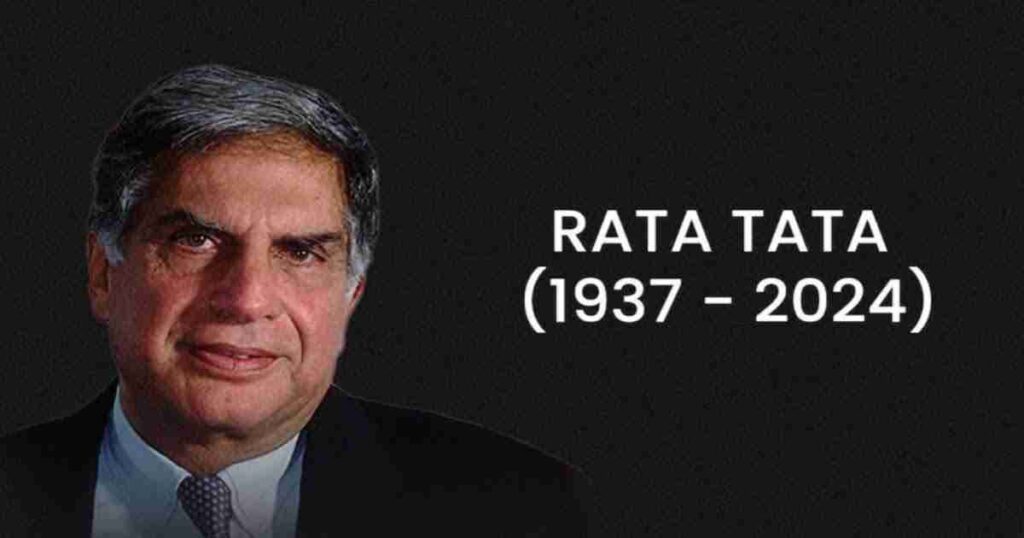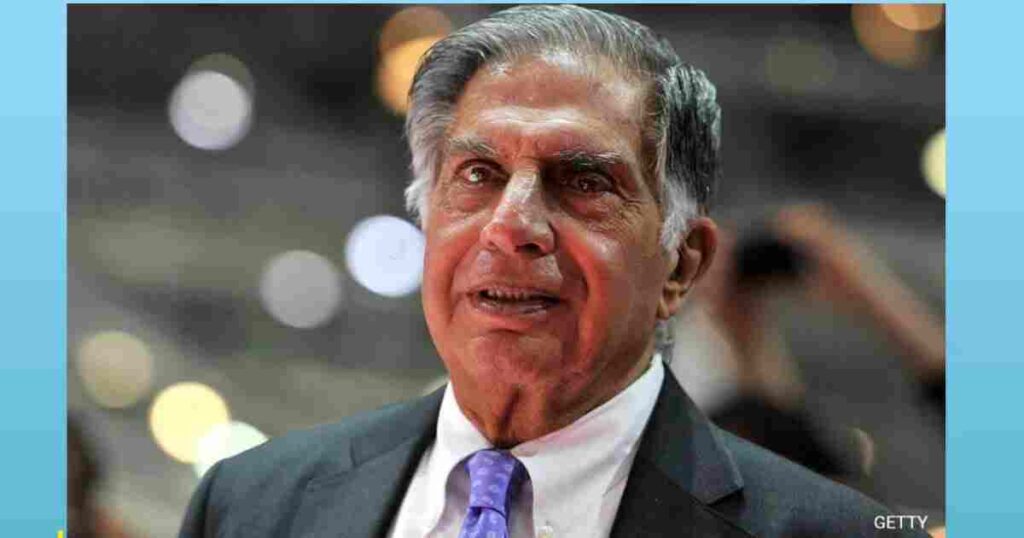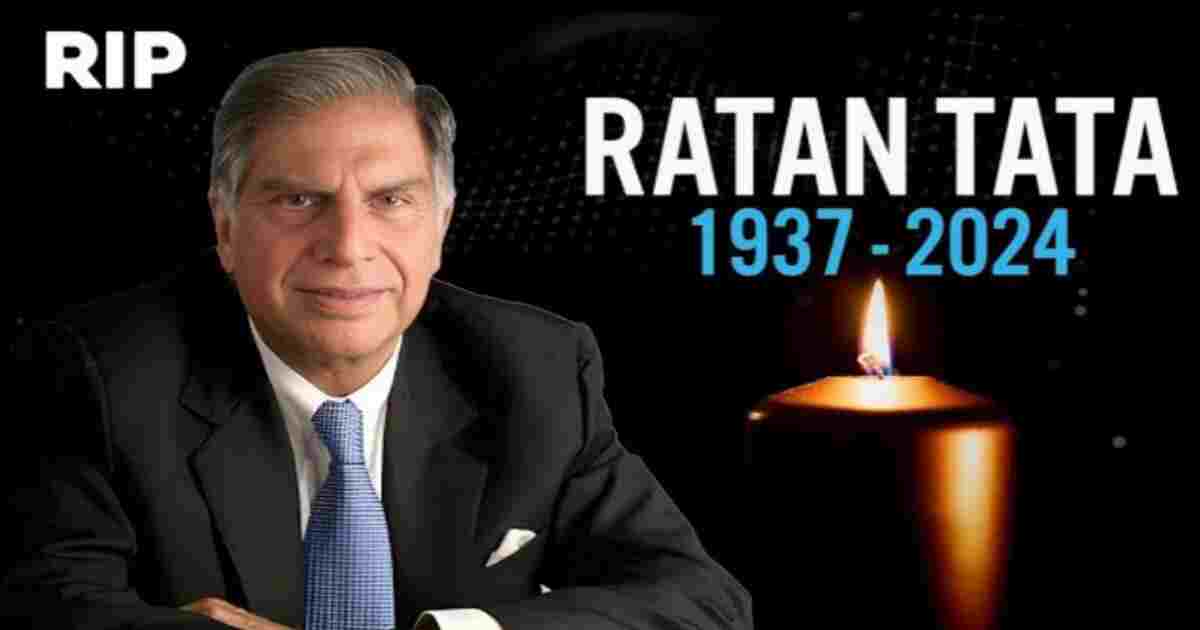Indian business tycoon Ratan Tata, aged 86, has passed away on Wednesday 9 October 2024, as announced by the Tata Group, the conglomerate he led for more than two decades. Ratan Tata, one of the most influential and internationally recognized business leaders, played a pivotal role in transforming the Tata Group into a global business powerhouse.
A Remarkable Legacy
The Tata Group is one of India’s largest companies, with annual revenues exceeding $100 billion. The current chairman of Tata Sons, Natarajan Chandrasekaran, described Tata as a “truly uncommon leader” in a statement. Chandrasekaran expressed his deepest condolences to Tata’s loved ones, stating that Ratan Tata’s legacy would continue to inspire the company.
Global Expansion Under Tata’s Leadership
During his tenure as chairman, Tata oversaw several high-profile acquisitions that solidified the Tata Group’s global presence. These acquisitions included the takeover of Anglo-Dutch steelmaker Corus, the British car brands Jaguar and Land Rover, and Tetley, the world’s second-largest tea company. His vision and leadership helped shape not only Indian business but also significantly impacted British industry.
A Titan of the Business World
UK Business Secretary Jonathan Reynolds paid tribute to Tata, calling him a “titan of the business world” who played a significant role in reshaping British industry. The Economist magazine, in a 2011 profile, also hailed Tata as a “titan,” recognizing his role in transforming the family business into a global empire, despite owning less than 1% of the group. Tata’s influence extended far beyond India, making him one of the most powerful businessmen in the world.

Retirement and Continued Influence
In 2012, Ratan Tata retired as chairman of the Tata Group, but he continued to serve as chairman emeritus of Tata Sons, the holding company of the group. His influence within the company remained strong, with his values and principles guiding the conglomerate even after his retirement.
Tributes from Indian Leadership
Indian Prime Minister Narendra Modi mourned the loss of Tata, calling him a “visionary business leader” and “an extraordinary human being.” Modi, in a tribute posted on X (formerly Twitter), shared memories of his many interactions with Tata and expressed deep sorrow over his passing.
Know more- click here
Early Life and Career
Born in 1937 to a traditional Parsi family, Ratan Tata studied architecture and structural engineering at Cornell University in the United States. He joined Tata Industries in 1962 and worked at several Tata Group companies, including Tata Iron and Steel Company (now Tata Steel), Tata Consultancy Services (TCS), and National Radio and Electronics (Nelco).
In 1991, Tata succeeded JRD Tata, his mentor and predecessor, as chairman of the Tata Group. Ratan Tata often spoke of JRD Tata’s profound influence on him, referring to him as both a father and brother figure.

Honored with the Padma Vibhushan
In recognition of his contributions to Indian industry, the Indian government awarded Ratan Tata the Padma Vibhushan, the country’s second-highest civilian honor, in 2008.
A Humble and Disciplined Leader
Peter Casey, author of The Story of Tata, described Ratan Tata as a “modest, reserved, and even shy man” who exuded a “stately calm” and demonstrated “fierce discipline.” Despite his reserved nature, Tata commanded respect and admiration from peers and employees alike.
The 2016 Controversy
Despite his many successes, Ratan Tata was drawn into a rare controversy in 2016 when his successor, Cyrus Mistry, was ousted as chairman of Tata Sons. This incident led to a high-profile management dispute, which left a stain on Tata’s usually impeccable reputation. Mistry tragically died in a car accident in 2022.
Passions Beyond Business
Ratan Tata was not only known for his business acumen but also for his personal passions. He had a well-documented love for fast cars and planes, which were described as “enduring passions” by the Tata Group’s official website. He was also an avid scuba diver, although he had to give up the hobby as he aged due to difficulties with the pressure on his ears.
Tata’s love for animals, particularly dogs, was another defining trait of his character. He often spoke about his deep affection for his pets. In a 2021 interview, he reflected on the sadness he felt whenever one of his pets passed away, but despite his initial reluctance to adopt more, he often found himself bringing new dogs into his life.
Simplicity and Humility
Ratan Tata’s simplicity and humility were well-known. In 2022, a video of him traveling in a Tata Nano—a car often remembered as one of the Tata Group’s less successful ventures—went viral on social media, reinforcing his down-to-earth nature despite his immense success.
Conclusion: A Legacy of Inspiration
Ratan Tata leaves behind an extraordinary legacy, not only in the world of business but also in the lives of those who knew him personally. His contributions to Indian and global industry are immeasurable, and his principles of integrity, simplicity, and humility will continue to inspire future generations.
